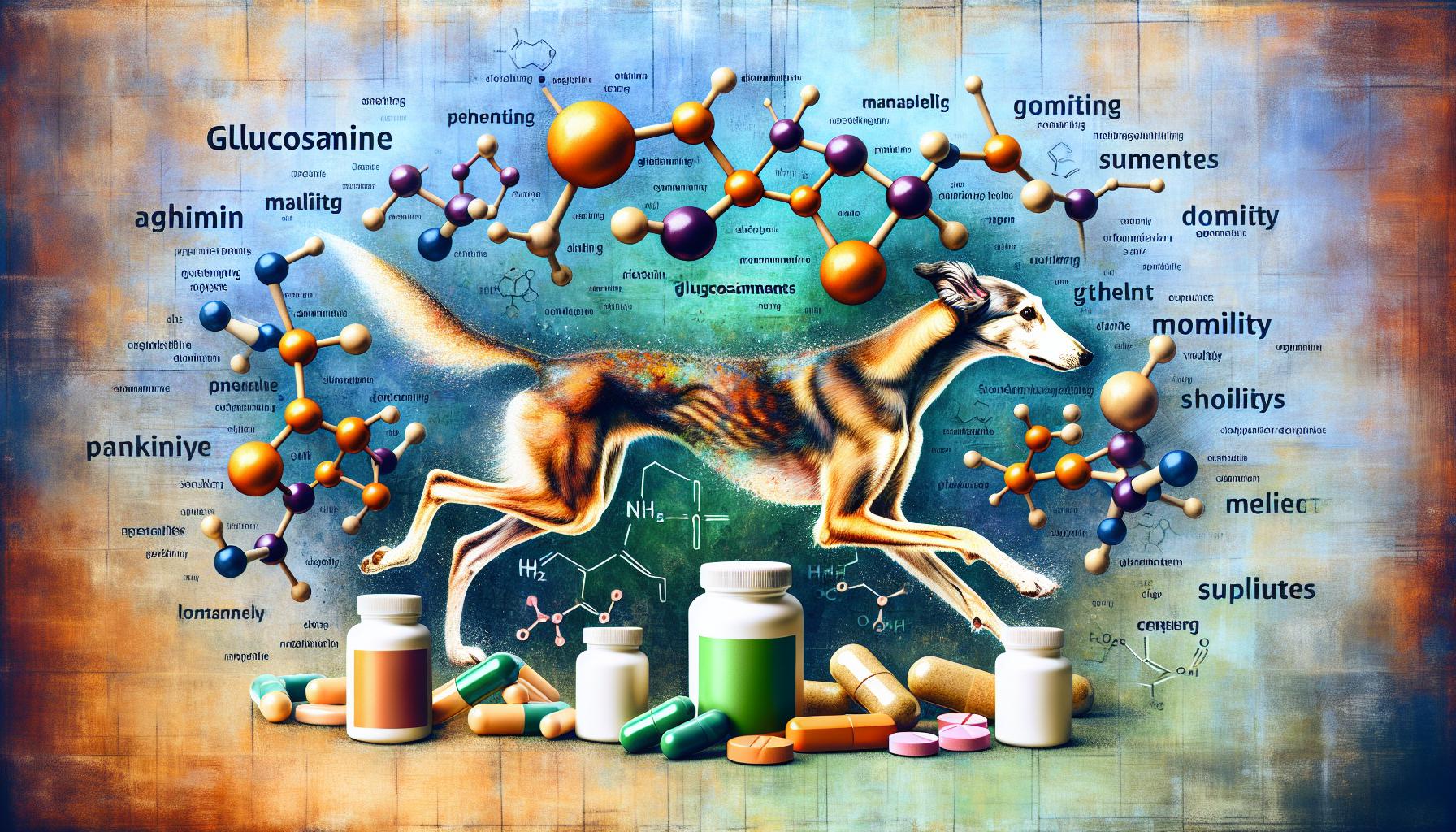
Entering The World of Glucosamine: A How-To Guide for Your Canine Companions
“Glucosamine per day for dogs?” To give a straightforward answer, it varies based on weight, aging, and a variety of other factors. Each unique, furry face might require a different dosage in their diet, and it’s hugely paramount to seek the advice of a trusted vet before making any sweeping changes. This article will delve deeper into the world of glucosamine, why it’s important for your pet, how to acquire an accurate dosage, and the signs to look for in case of an overdose.
Understanding Glucosamine and Its Importance for Dogs
Glucosamine is a natural compound that is notable for its role in maintaining good, hardy health in your dog’s joints. It’s the spell in the potion that keeps the mobility in your pooch’s pounce. By providing the building blocks for body tissues, it plays a very vital role in producing the nutrients that repair and maintain cartilage. As an added bonus, glucosamine’s anti-inflammatory properties also help with reducing pain and swelling while improving joint health.
The Source of the Magic: Glucosamine in Food and Supplements
While glucosamine is present in certain foods like beef trachea, poultry neck, and shellfish shells, some dogs require a more concentrated dose in supplement form. This is especially true for older dogs whose natural glucosamine production declines with age. A supplement can be a great booster to keep those tails wagging.
Navigating Glucosamine Dosage for Your Dogs
Determining how much glucosamine your dog needs per day can feel like a twisted game of Twister, filled with numbers and uncertainty. However, generally, the dosage is calculated based on your dog’s weight. As a base rule of thumb, vets commonly recommend approximately 20mg of glucosamine per pound of the dog’s body weight. This dosage is usually adjusted to cater to your pet’s specific needs.
Monitoring for Signs of Glucosamine Overdose in Dogs
Just like how too many treats can lead to a tummy ache, too much glucosamine can also have adverse effects on your dog. While occurrences are rare, signs of an overdose might include vomiting, diarrhea, or extreme thirst. If you notice any of these, it’s time to play safe and visit the vet.
Using Glucosamine Supplements for Dogs Wisely
When it comes to glucosamine supplementation, discretion is the better part of valor. Chronic symptoms like joint pain and arthritis should warrant a visit to your pet’s vet prior to supplementing glucosamine. Armed with a wealth of knowledge and experience, vets can provide you with the best professional advice and a tailored plan for your pet’s needs.
Making the Right Moves with Glucosamine
Remember, glucosamine is not a one-stop solution for joint pain or arthritis in dogs. As with humans, adopting a healthy diet and lifestyle, fostering an environment that encourages below-the-knee activities can contribute greatly to improving your dog’s joint health.
Wrapping up the Glucosamine Guide for Dogs
To sum it up, glucosamine is an important compound that helps maintain your dog’s joint health and enhances their mobility. The exact dosage should be determined along with your vet, considering your dog’s weight, age, and overall health situation. Listen to your dog and be observant of their needs because nothing beats the gentle purr of a contented and healthy pet at your feet.
Frequently Asked Questions
1. Can a dog overdose on glucosamine?
While rare, yes. Signs can include extreme thirst, vomiting, or diarrhea. It’s important to consult with a trusted vet to determine the proper dosage for your dog.
2. Can all dogs take glucosamine?
Most dogs can benefit from glucosamine, especially older dogs or those with joint issues. Always consult a vet to determine if it’s appropriate for your pet.
3. How long does it take for glucosamine to work on dogs?
Each dog will vary, but it can take between 4 to 6 weeks for noticeable effects.
4. Can I give my dog human glucosamine?
While human glucosamine isn’t typically harmful to dogs, it’s best to use products specifically made for dogs as human supplements may contain additional substances that aren’t healthy for dogs.
5. How can I naturally add glucosamine to my dog’s diet?
Certain foods like poultry neck, beef trachea, and shellfish shells are all natural sources of glucosamine. Some dog foods also contain added glucosamine.

